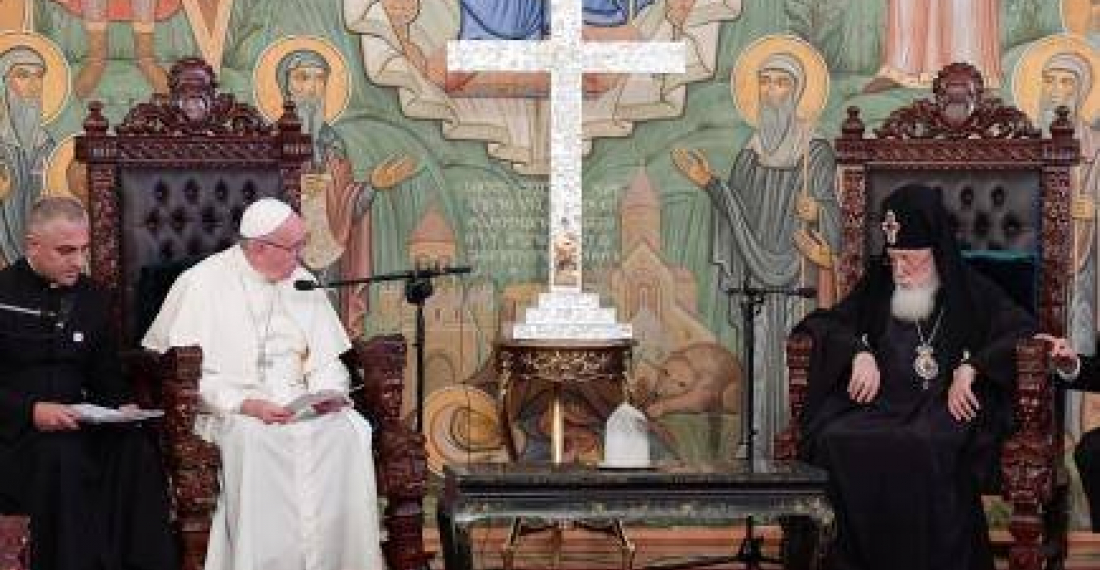Pope Francis has spoken in warm terms about his visit to Georgia and Azerbaijan a few days ago. Addressing a general audience at the Vatican Pope Francis said that "Patriarch Ilia's presence at the airport upon my arrival [in Georgia] was a very important sign, as well as our visit to the Patriarchal Cathedral and our meeting which was very moving".
The Pope said,
I thank the Lord for the grace of my recent visit to Georgia and Azerbaijan, and I renew my gratitude to the civil and religious authorities of both countries, in particular to the Patriarch of All Georgia, Ilia II, and to the Sheikh of the Muslims of the Caucasus. This visit complemented my visit to Armenia in June, and fulfilled my desire to visit all three nations of the Caucasus to confirm the Catholic community and to encourage all the people in their journey toward peace and fraternity.
Though Georgia and Azerbaijan enjoy ancient historical, cultural and religious roots, they have only just celebrated twenty-five years of independence, and are experiencing great challenges. The Catholic Church is called to be close to them, especially through works of charity and promoting the good of the human person, in communion with the other Churches and Christian communities, and in dialogue with other religious communities. In Georgia, our cooperation is naturally with our Orthodox brothers and sisters, and so Patriarch Ilia's presence at the airport upon my arrival was a very important sign, as well as our visit to the Patriarchal Cathedral and our meeting which was very moving. Our unity is seen in the blood of so many Christian martyrs of different Christian confessions, especially the Assyrian-Chaldean, with whom we prayed for peace in Syria, Iraq and the whole Middle East.
In Azerbaijan, a primarily Muslim country, I was able to participate in an interreligious meeting and to celebrate Mass with the small Catholic community. Our communion of faith inspires us to deepen our encounter and dialogue with all who believe in God, so that together we can build a more just and fraternal world. May God bless Armenia, Georgia and Azerbaijan, and guide his holy people in those countries.
source: commonspace.eu with Vatican Radio






